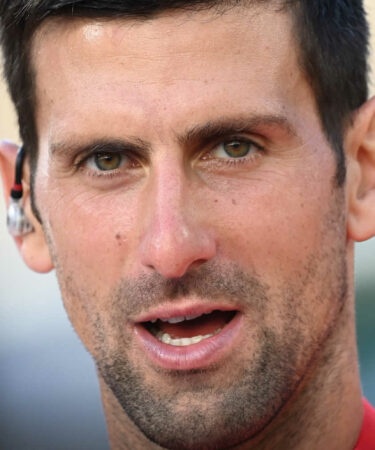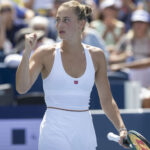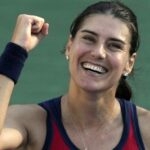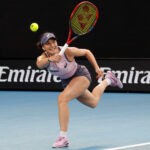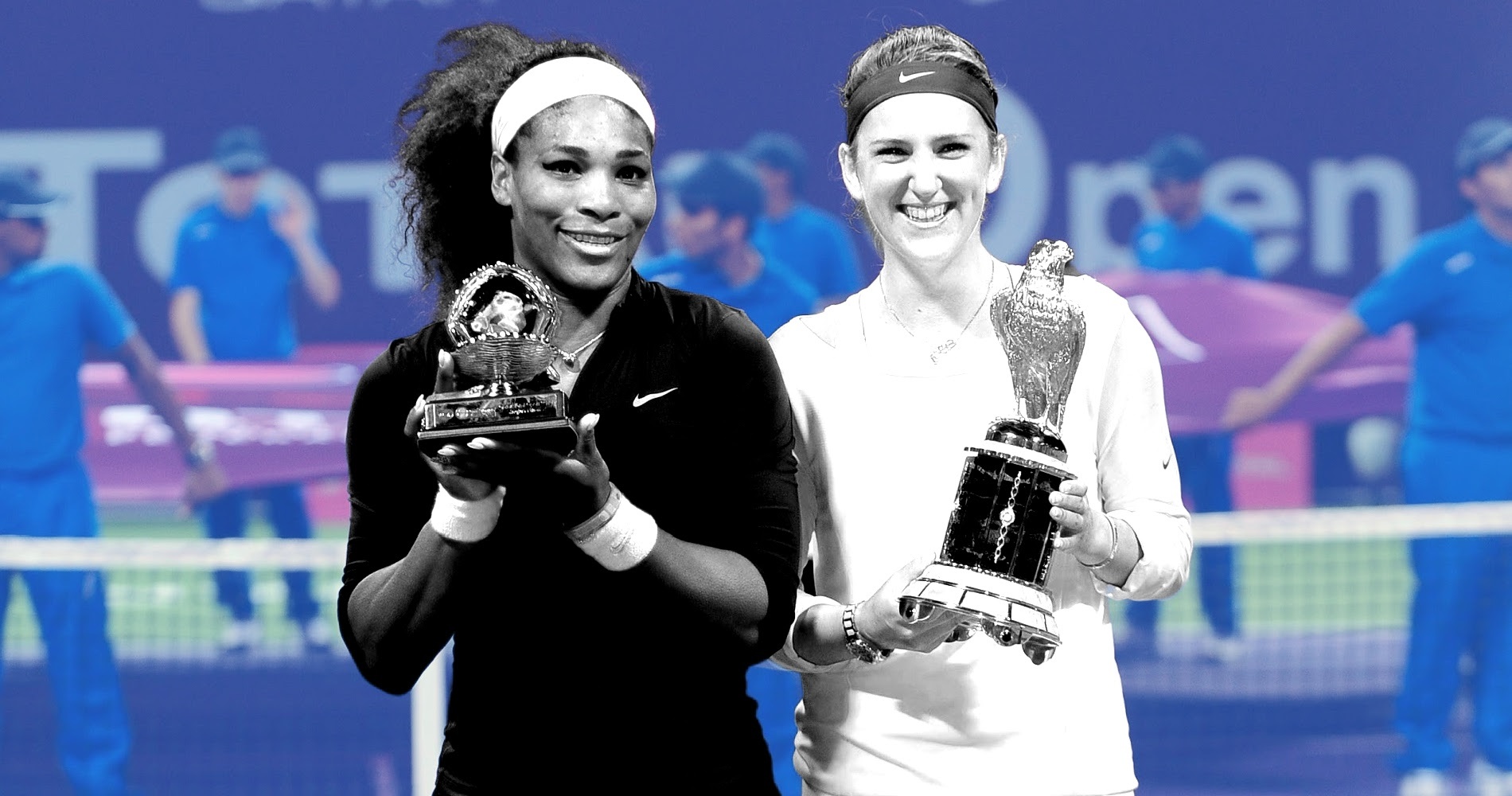The origin of the famous video: Why was Djokovic interviewed when he was only seven years old?
When he was just seven years old he went on TV and declared to the world that he wanted to be No 1. 27 years later we share the untold story of that famous footage of Novak Djokovic, which aired on Serbian television in 1994.
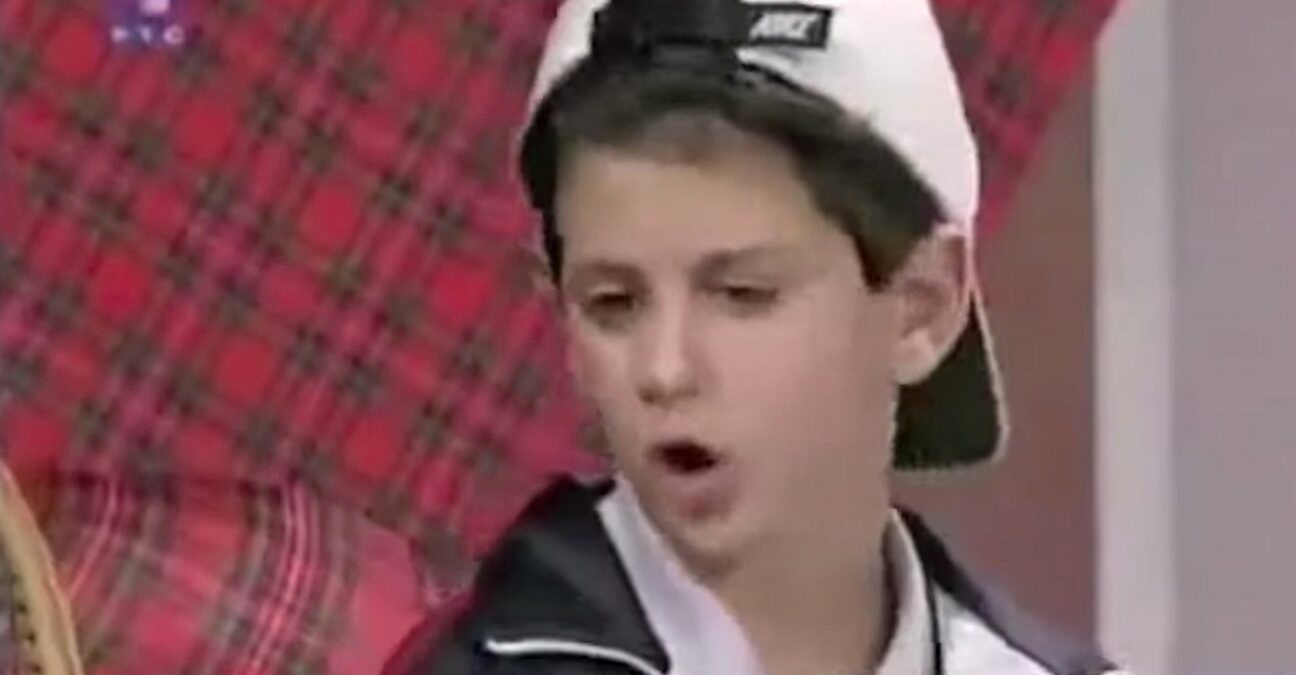 Novak Djokovic in 1994 (YouTube caption)
Novak Djokovic in 1994 (YouTube caption)
Since, he broke Roger Federer’s record with 311 weeks at the top of world ranking on Monday, most of you have seen the footage by now.
Below, we witness the gem: Djokovic describing to a host how he solves his opponents as he casually unveils his plans to become the ATP’s No 1 player. You saw it, but you don’t know where this historical piece for tennis comes from. How did it come to be; why did Novak Djokovic appear on television at such a young age, and on a national public broadcaster – Radio Television of Serbia (RTS)?
Serbia in the nineties; restoring pride through sports
For someone not entirely familiar with the circumstances in the Balkans during the nineties, the whole ex-Yugoslavia conflict may seem complicated. The reason? It is complicated. At the time Djokovic was giving his interview in Belgrade, a war that dissolved the Socialist Federal Republic of Yugoslavia was raging not too far away, hundreds of kilometers only, in Croatia and Bosnia and Herzegovina. Most of the people in Serbia were poor due to a devastated economy, a consequence of the international sanctions imposed because of the war.
People in Yugoslavia were always passionate about sports. Tennis was not the biggest sport there, but Yugoslavia were in semi-final of the Davis Cup when the war happened in 1991 – Novak Djokovic was four years old. This love for the sport took on a whole different dimension after the war in 1995 ; Djokovic’s country – now called the Federal Republic of Yugoslavia and consisting of what today are Serbia and Montenegro – was looking to restore its pride, and possibly the strongest means to do so was on the sporting stage.
After the sanctions were lifted, the Yugoslavian basketball team won the European Championship in 1995 ; hundreds of thousands of people gathered spontaneously in the streets afterwards and there was a huge celebration on the square between Belgrade’s City Hall and the House of the National Assembly of the Republic of Serbia located in the centre of Serbia’s capital.
Djokovic on the famous balcony
It became a tradition; just ask any Serbian athlete and they will likely say that one of the biggest dreams they have is to be on the famous “balcony” and to celebrate their success with the people. After Djokovic won Wimbledon and became world number one for the first time in 2011, more than 100,000 people gathered in the square; to this day, and despite all the trophies he has won, Novak often says that that day in Belgrade is one of the most wonderful memories of his career.
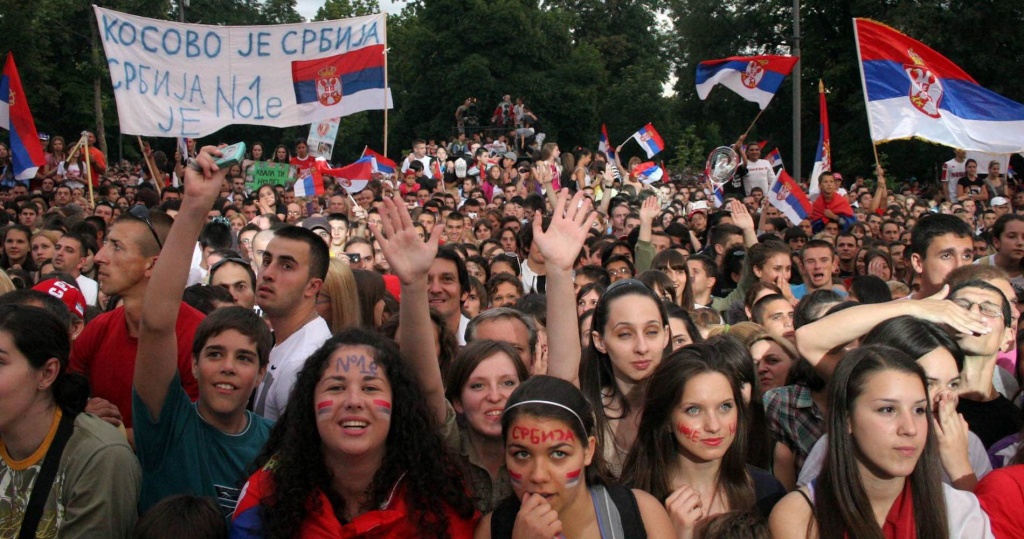
“I have felt the support from the people of Serbia, of course I have, but until that moment in 2011 I did not fully realize how much it meant for our people. That is my biggest success – to be able to share this huge accomplishment not just with my close ones, but with the people I have never met, the people who feel so connected to me that they feel this success as their own,” Djokovic told Serbian news agency Tanjug on Monday.
Careful, Wet Paint
It has been a long journey to that Monday, 8th of March, on which Djokovic broke Federer’s record for most weeks holding the ATP’s No 1 ranking.
One of the first recorded steps of that journey takes us back to the famous interview on the kids’ show called “Pazi, sveže obojeno” (“Careful, Wet Paint”). Although the official archives of Radio Television of Serbia tell us that the show with young Novak ran in 1996, it was actually on air two years earlier. Novak Djokovic was seven.
“Pazi, sveže obojeno” was run by a crew of ten kid-actors under the supervision of grown-up actress Ivana Despotović. Within the show there was a segment dedicated to kids’ sports with results from all youth leagues and a guest, usually a talented young player, representing one of the sports.
“Novak was already winning tournaments in categories above his age, so it was natural that the people from the production called him,” recalls Igor Bećirić, one of the hosts on “Pazi, sveže obojeno”, mainly in charge of the sports segment.
Jelena Genčić, Novak’s tennis mother, worked on RTS
There was another catch as well. Jelena Genčić, Novak’s first coach and a woman who first saw “a genius” in Djokovic, was an incredible person with broad interests; apart from being a handball player, and then a handball and tennis coach, Genčić worked for Radio Television of Serbia as a director producing arts, kids and culture programmes.
“I remember Jelena Genčić (she died in 2013, editor’s note) bringing various kids from tennis on the show quite often. One of those kids was Novak and then, twenty years later, somehow that interview became public,” tells us Miloš Tanasković, who interviewed 7 year old Djokovic.
Novak often mentions how hard it was to grow up in war-torn Belgrade and sadly, the destiny of “Pazi, sveže obojeno” was inescapably tied to the war; it was ended abruptly because of the NATO bombing of Yugoslavia in 1999 during which the building of Radio Television of Serbia was hit as well.
“Our studio was in the part of the building that was bombed. To the best of my recollection, most of the archives of our show were destroyed. That is why there were never any reruns,” says Bećirić.
Djokovic : “When I was seven years old…”
The part of what was to become their most famous episode, though, was preserved. And it contained one of the greatest tennis players of all time, Novak Djokovic, saying that tennis for him was “an obligation” and that he “plays at night” because during the day he has school and tennis practices in the afternoon. Remember – he was only seven!
“When I was seven years old, I dared to say to everyone that I can become the best in the world. The desire was so powerful that it manifested itself against all the troubles I have faced,” wrote Djokovic on Instagram.
Indeed it was.

